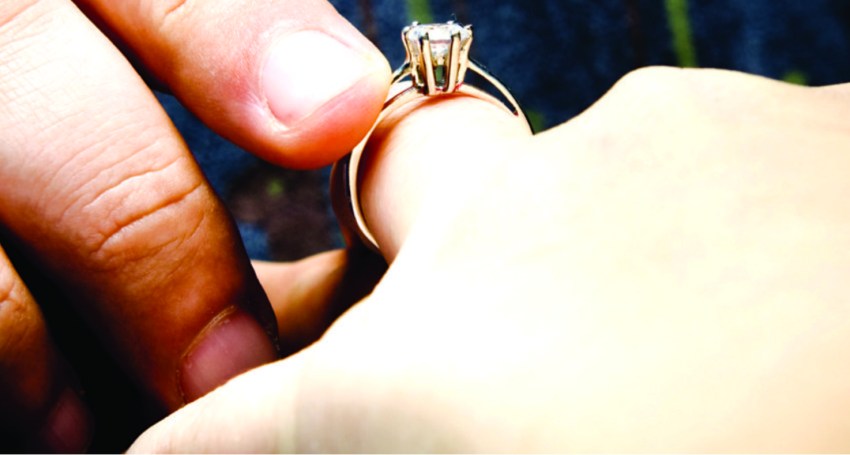The government should stop marrying people
Opinion
Writing in Eureka Street, a publication of the Australian Jesuits, Dr Rachel Woodlock argues governments should not be in the business of issuing marriage certificates, rather it should determine who has the legal right to enter into secular, contractual arrangements protecting assets and guardianship matters.

My guilty pleasure is watching Judge Judy during my lunch break. Sandwich and cuppa in hand, I love watching her harangue dead-beat parents over child support arrears, sniff out which lovesick teenager is responsible for keying an ex-boyfriend’s car, and lecturing separated couples fighting over who gets the washing machine and the cable bill.
Often, she will ask why they didn’t bother to marry: ‘You’re committed enough to make a baby, but not to get married?’ she’ll rhetorically ask in her no-nonsense Brooklyn Jewish grandmother accent. ‘We have courts for marriages that break up but not for when living together doesn’t work out,’ she explains.
Advertisement
In a nutshell, Judge Judy is explaining the modern democratic state’s interest in marriage: recognising the contractual rights and obligations of two people who share resources and (where they exist) rights and responsibilities to children.
The state doesn’t have an opinion on whether God approves of the union because theocracy went out of fashion in the West, along with the Divine Right of Kings. These days in Australia, the state doesn’t even care to enforce sexual exclusivity of partners, although once upon a time that was a major element of marital law. Divorce is all about distribution of assets and establishing proper care of the kids. So why the brouhaha over marriage for gay people?
Since time immemorial, different societies and cultures have developed all sorts of rules and taboos about marriage, which makes for fascinating reading and belies the notion that there is a single, eternal concept of marriage that straight people can access but gays may not. Some types of marriage permissible in different times and cultures are not accepted under current Australian law, other types are perfectly legal here but a big no-no in other times and places.
Take interreligious marriages, for example. In Australia, a Satanist can marry a Jedi Knight and no-one gives two hoots, but a fourth century Christian couldn’t even dine with a Jewish neighbour, let alone marry him, thanks to the Council of Elvira. Things have relaxed a bit since then, but even in 1938 my CofE grandfather had to marry his Catholic bride ‘behind the altar’ and her relatives wouldn’t darken their doorstep.
Muslim men have to restrict themselves to four wives, but fundamentalist Mormons are good to go with any number. Polygyny was common enough in ancient Judaism, the record being held by King Solomon and his thousand wives and concubines. Ambiguously, Saint Paul insisted bishops should be the ‘husband of one wife’, prohibiting either polygyny or serial monogamy — at least for those in charge. Today, bishops of either the Catholic or Orthodox variety aren’t permitted to be husbands full stop, at least not with living wives.
None of the Semitic religions let women collect multiple husbands, but they do in the Himalayas. Polyandry is recorded as practiced there and in over 50 other societies including in the Marquesas islands, and among the Inuit and the Yanomamö. The pre-Islamic Arabs determined paternity by the woman gathering all her husbands together and choosing who was the father. It’s a bit easier, these days, with DNA tests.
You can marry your uncle or aunt in Australia, one of the few places in the world where it’s legal, but South Korea bans degrees of affinity out to third cousins. Adolf Hitler’s mother married either her uncle or first cousin once removed (the family history is messy). Either way she called him ‘uncle’ all her life. Cousin marriage is common in the Middle East and among the European upper class. Before marrying Lady Diana Spencer, Prince Charles proposed to his second cousin Lady Amanda Knatchbull, following in the footsteps of his ancestor Queen Victoria, who married first and third cousin Prince Albert.
Advertisement
The permissible marriage age varies too. In the United States, exceptions to the minimum age of 18 (19 in Nebraska and 21 in Mississippi) include pregnancy and parental consent. According to the Pew Research Center, in 2014 in the United States, there were 57,800 married minors (youngsters aged between 15 and 17) and 25 US states have no minimum age requirements for exceptions.
This is all by way of saying that marriage is a product of the cultural attitudes and religious beliefs of different societies and groups of people. There will never be universal agreement over what constitutes a valid marriage or who should be allowed to marry or not. In a secular, democratic country like Australia, the government should get out of the marriage business altogether.
What the government should do is determine who has the legal right to enter into secular, contractual arrangements protecting assets and guardianship matters. That means everyone — gay or straight — gets a civil registration, not a marriage certificate. Leave marriage ceremonies to the various churches, synagogues, mosques, humanist societies and non-religious wedding celebrants to conduct them (or not) according to their various ethical and moral stances. The state really does not care whether gay sex is a sin, only who gets the washing machine and cable bill in the end.
Dr Rachel Woodcock is an expat Australian academic and writer now living in Ireland.











Comments
Show comments Hide comments